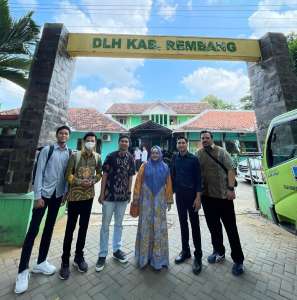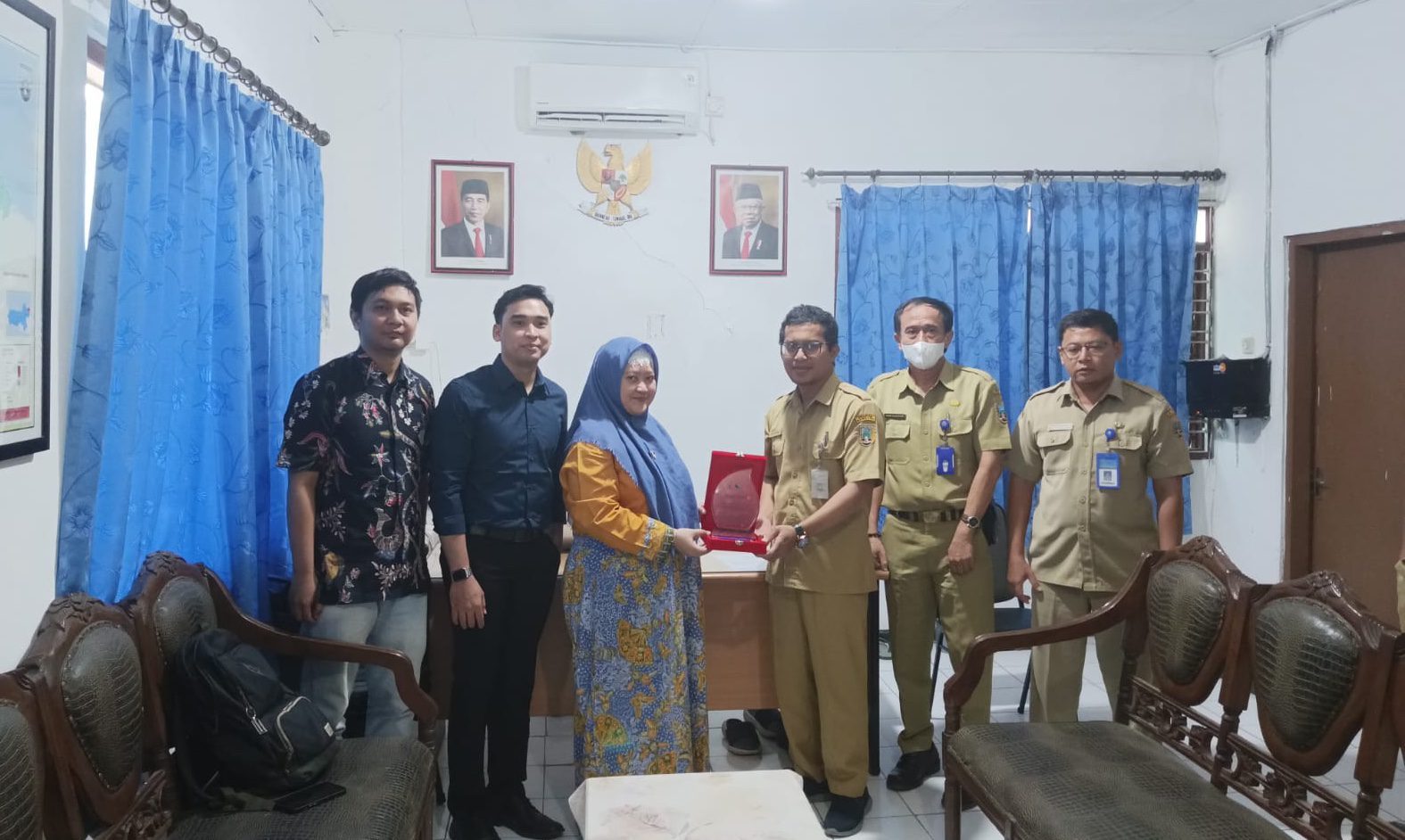Pada tanggal 10-11 Juni 2024, Tim Pengabdian Masyarakat dari Laboratorium Enterprise System and Solution (Lab ESS), Program Studi Teknik Industri, Telkom University yang terdiri dari Dr. Amelia Kurniawati, S.T., M.T., Fahmy Habib Hasanudin,S.T., M.T., Fandi Achmad, S.T., M.T., Rizki Fajar Ahmad Gurnita, Raihan Abdurrahman, dan Cindy Joselyn Lim melaksanakan program pengabdian masyarakat di Kecamatan Lasem, Kabupaten Rembang. Kegiatan ini difokuskan pada penanganan limbah dari Industri Kecil dan Menengah (IKM) Batik di wilayah tersebut.

Kecamatan Lasem yang dikenal sebagai “Kota Batik”, merupakan salah satu sentra produksi batik terkemuka di Indonesia. Namun, perkembangan industri batik di kawasan ini menghadirkan tantangan serius dalam pengelolaan limbah. Limbah batik, yang mengandung bahan kimia berbahaya, berpotensi mencemari lingkungan jika tidak dikelola dengan baik. Tim Pengabdian Masyarakat Lab ESS, Telkom University melakukan observasi dan diskusi mendalam untuk memahami kondisi limbah dari beberapa IKM Batik di Lasem. Sebagai bagian dari pengabdian masyarakat, tim melakukan pengambilan sampel limbah dari setiap IKM Batik yang terlibat. Sampel tersebut kemudian dianalisis untuk mengetahui tingkat pH (derajat keasaman), Biochemical Oxygen Demand (BOD), Chemical Oxygen Demand (COD), Total Suspended Solids (TSS), dan Total Dissolved Solids (TDS). Hasil analisis menunjukkan bahwa semua sampel limbah dari IKM Batik di atas melebihi baku mutu standar yang ditetapkan oleh pemerintah.

Setelah mendapatkan hasil analisis, tim melakukan diskusi dengan Dinas Lingkungan Hidup Kabupaten Rembang. Hasil diskusi menegaskan bahwa pengelolaan limbah yang memadai sangat diperlukan untuk mencegah kerusakan lingkungan yang lebih parah. Namun, tantangan utama yang dihadapi adalah biaya untuk pembangunan dan operasional Instalasi Pengolahan Air Limbah (IPAL) yang sangat tinggi. Selain itu, menurut informasi dari pihak Dinas Lingkungan Hidup, IPAL tersebut membutuhkan daya listrik sebesar 2.000 watt agar bisa difungsikan secara optimal. Ini menambah tantangan bagi IKM Batik yang umumnya memiliki keterbatasan dalam hal sumber daya listrik. Dinas Lingkungan Hidup menyatakan bahwa solusi jangka panjang yang efektif memerlukan kolaborasi antara pemerintah, industri, dan masyarakat. Pembangunan IPAL komunal yang dapat digunakan bersama oleh beberapa IKM menjadi salah satu opsi yang dipertimbangkan, tetapi memerlukan dukungan dana yang cukup besar dan komitmen dari semua pihak.
Sebagai langkah awal untuk meningkatkan kesadaran tentang pentingnya pengolahan limbah, tim pengabdian masyarakat Lab ESS, Telkom University menyusun dan memberikan pelatihan dalam bentuk modul edukasi kepada para pelaku IKM Batik. Modul ini mencakup informasi tentang jenis-jenis limbah batik yang berbahaya, dampak negatif limbah terhadap lingkungan dan kesehatan, serta cara-cara sederhana yang dapat dilakukan untuk mengurangi dampak tersebut. Modul ini juga menyediakan panduan praktis untuk pengelolaan limbah yang ramah lingkungan, termasuk penggunaan bahan kimia yang lebih aman dan metode pengolahan limbah yang dapat diterapkan dengan biaya yang relatif rendah. Harapannya, dengan modul ini, para pelaku IKM Batik dapat lebih memahami pentingnya pengelolaan limbah yang baik dan berkomitmen untuk melakukan perubahan positif.
Tim Pengabdian Masyarakat Lab ESS, Telkom University berharap bahwa hasil dari kegiatan ini dapat menjadi titik awal bagi langkah-langkah konkret kegiatan berikutnya dalam mengatasi masalah limbah batik di Lasem. Dengan peningkatan kesadaran dan pengetahuan, serta dukungan dari semua pihak terkait, diharapkan Lasem dapat tetap mempertahankan reputasinya sebagai kota batik yang tidak hanya indah tetapi juga ramah lingkungan. Kedepannya, kolaborasi antara universitas, pemerintah, dan industri perlu terus ditingkatkan untuk menciptakan solusi inovatif yang dapat diterapkan dalam skala yang lebih luas. Program pengabdian masyarakat seperti ini diharapkan dapat terus berlanjut dan menjadi model bagi daerah lain yang menghadapi tantangan serupa.
